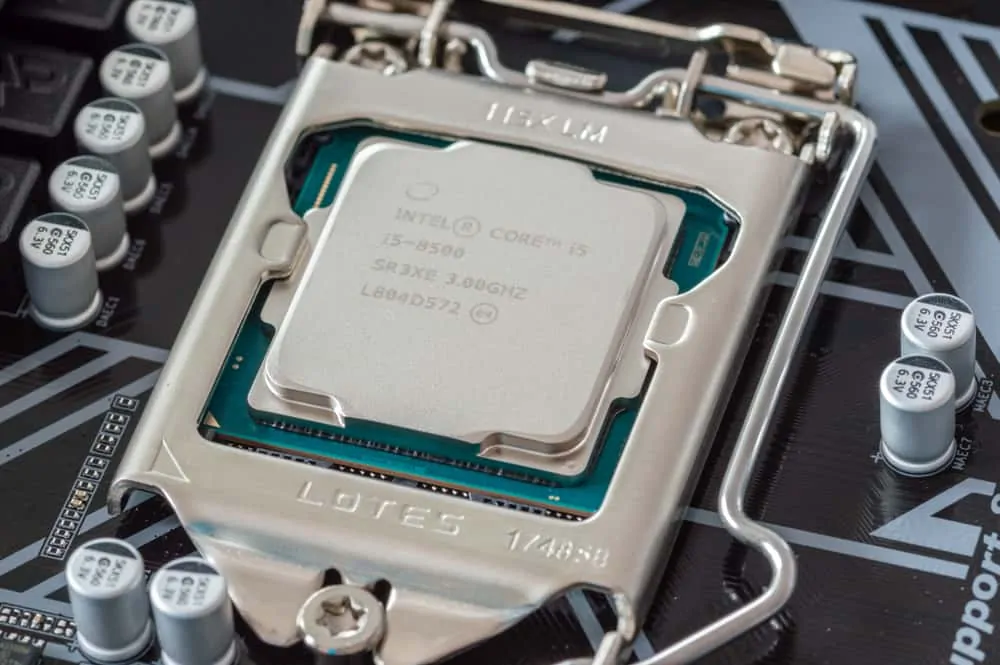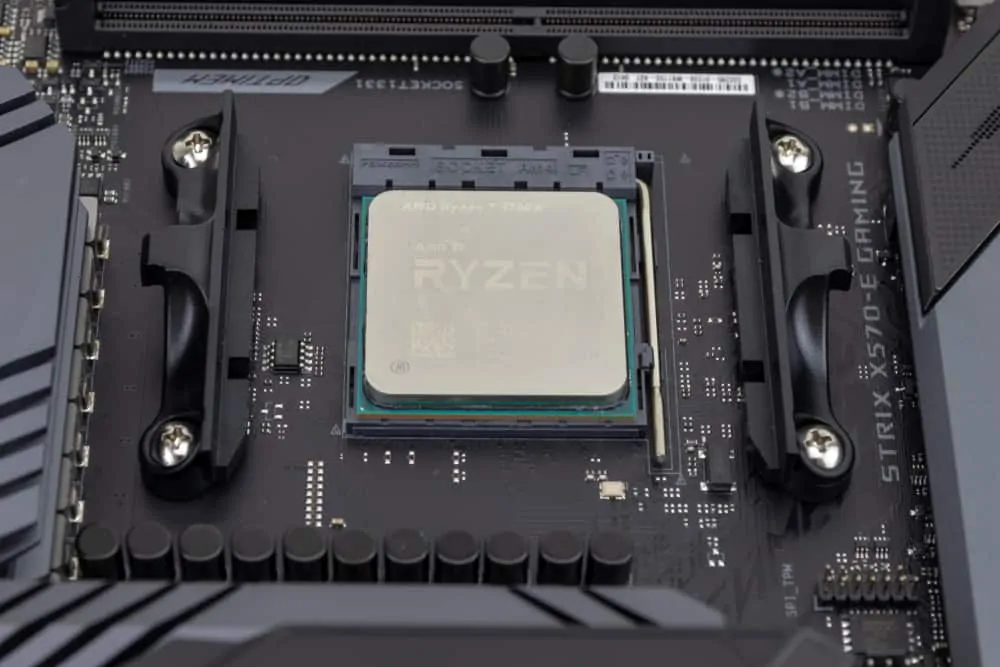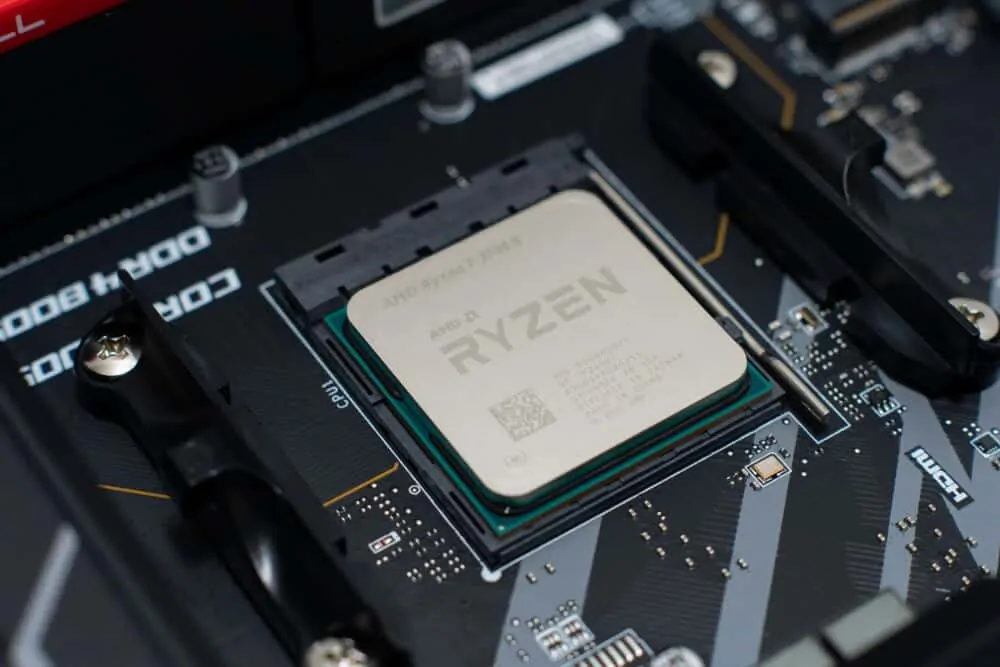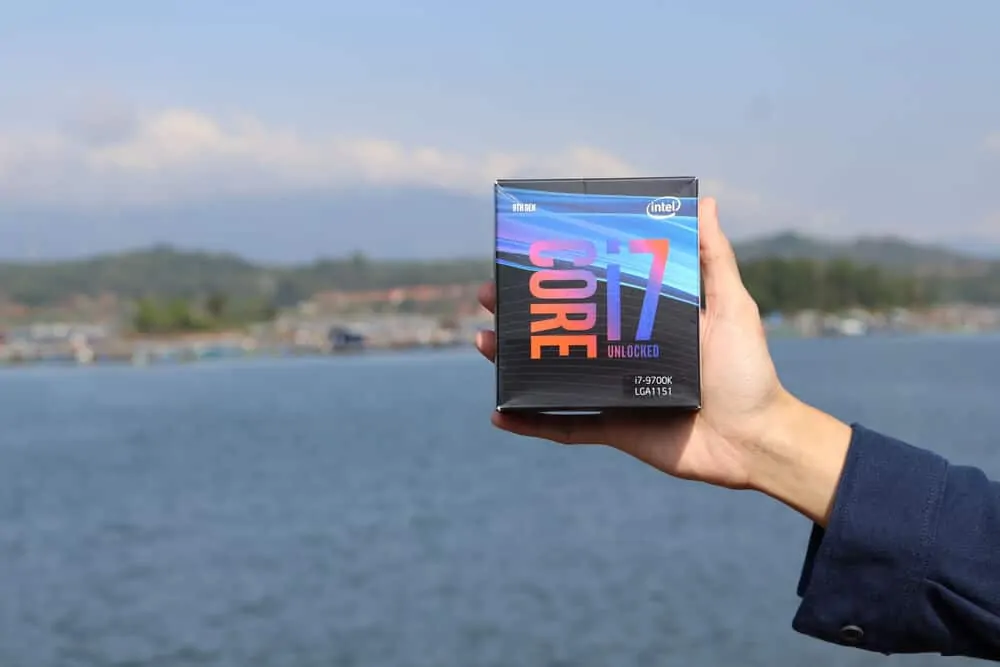i9 9900K vs i7 9700K: Number of Cores and Threads
Processor Core is a technical term used to define the number of independent CPUs in a single processor chip. The number of cores affects the performance of a processor. Considering other factors, the more cores in a processor chip, the faster the processor.
Apart from the number of CPUs in a processor, there is another performance factor – the CPU threads. This is the number of sequences of instructions that a single CPU core can handle. The more the threads in a single CPU core the more tasks it can perform – leading to a faster processor.
Intel i9 9900K is an 8-core, 16 threads process while Intel i7 9700K is 8-cores, 8 threads processor. Based on the details I provided above, comparing i9 9900K vs i7 9700K for cores and threads, i9 9900K is a better processor.
i9 9900K vs i7 9700K: Maximum Clock Speed
The Clock speed or frequency of a processor is the number of simultaneous processes the processor can complete in one processing cycle. In theory, the more processes a processor can complete in a single processing cycle, the faster the processor.
Intel i9 9900K and i7 9700K come with a base frequency of 3.60 GHz. However, i9 9900K has a maximum frequency of 5.00 GHz while i7 9700K can be clocked up to 4.9 GHz.
For maximum clock speed, both processors offer the same features.
i9 9900K vs i7 9700K: L3 Cache
A processor requires memory to operate. To help with quick retrieval of processes in the queue, a processor has fast memories called caches. As at today, there are 3 cache levels – L1, L2, and L3. These fast memory chips are attached directly to the processor chip.
For the purpose of comparing i9 9900K vs i7 9700K for cache, I use the L3 caches of the 2 processors. i9 9900K has a 16 MB L3 cache while i7 9700K has a 12 MB L3 cache.
For L3 cache, i9 9900K wins with 16 MB compared to 12 MB for i7 9700K.
i9 9900K vs i7 9700K: Max Supported Memory
In the last section, I mentioned that the cache supports the processor to process tasks fast. However, the cache size is usually small. When the cache runs out of space, the processor receives additional support from the system memory.
The implication of this is that the bigger the system memory, the faster the processor can get. However, the maximum memory you can install on a computer is limited by what the maximum memory the processor supports.
In comparing i9 9900K vs i7 9700K for maximum supported memory (RAM), there is no winner. Both processors allow a maximum of 128 GB DDR4-2666 with a maximum of 2 memory channels.
Conclusion
The table below is a summary of the performance features of i9 9900K vs i7 9700K.
| Feature Name | Intel i9 9900K | Intel i7 9700K | Winner |
|---|---|---|---|
| Number of Cores | 8 | 8 | No winner |
| Number of Threads | 16 | 8 | i9 9900K |
| Maximum Clock Speed | 5.00 GHz | 4.9 GHz | i9 9900K |
| L3 Cache | 16 MB | 12 MB | i9 9900K |
| Max Supported Memory | 128 GB | 128 GB | No winner |
My final verdict: in terms of performance, i9 9900K is a clear winner. I, therefore, recommend the Intel Core i9 9900K processor.
I hope you found this comparison/buying guide helpful. If you did, click on “Yes” beside the “Was this page helpful” question below.
You may also express your thoughts and opinions by using the “Leave a Comment” form at the bottom of this page.
Finally, to read more laptop buying guides, visit our Processor Buying Guides page. You may also see more Processor Specs and deals or compare more processors.



